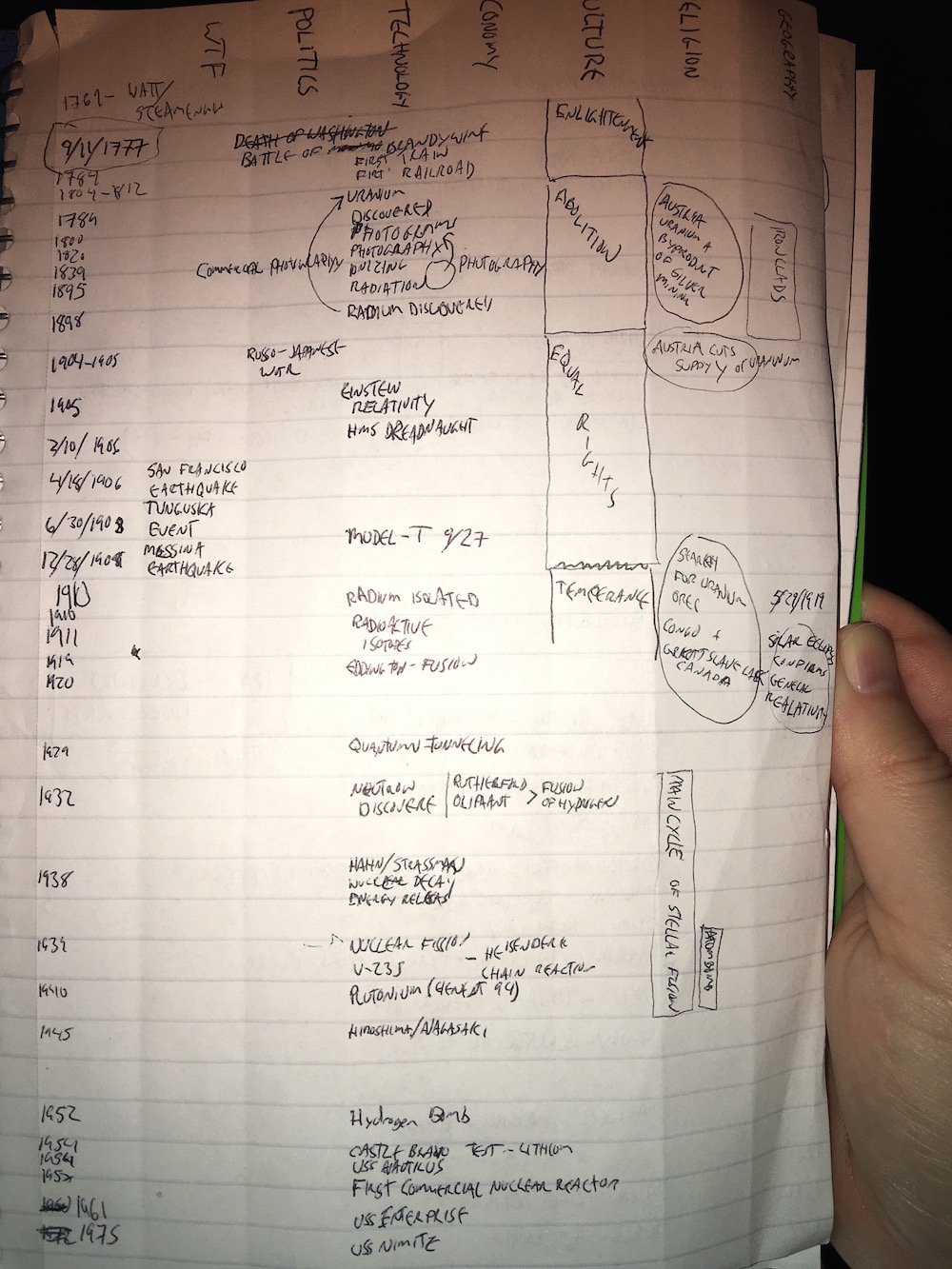Back in Why Build it? I had the bright idea that I would rewrite history a bit. And that doing so would solve a bunch of narrative issues that would crop up by simply taking today and projecting forward a few hundred years or so. When I'm feeling less than creative, I tend to turn to reading about writing. And when I'm feeling less creative than that, YouTube. And one of my favorite YouTubers is Hello Future Me and this week he was talking about On Worldbuilding: Fictional Histories.
It's a great talk, definitely worth the watch, but at the risk of summarizing a brilliant summary: History is Complicated. And I don't think I respected that enough when I set out with my ambitious plan to rewrite history from 1777 and on. Here is a rough sketch I made on the history of Nuclear Power in our own timeline:

One of the core ideas in my story is that that somehow people discovered Nuclear Power during the First World War. In the process they managed to sidestep a lot of the unpleasantness of World War II and follow-on wars fought over Oil. Granted, at the cost of an even longer and even more stupid phase of Nuclear Brinkmanship that would lead to one world power occupying the Moon, and the rest of the world creating colonies around the Asteroid belt.
From my timeline it's clear to see that technology takes time. All of of the events in the history of Nuclear Power take place over 80 years. At one end is the accidental discovery of radation in 1896. On the other end of the line is the development of the Standard Model and the launching of the USS Nimitz1 in 1975.
That span of time also includes 2 world wars, Women's Suffrage, the Spanish Flu, the 1906 San Franciso Earthquake, the Great Depression, the New Deal, the Communist Revolutions of Russia AND China, the fall of every European Empire, and... I could go on.
For Nuclear Power to be a factor in World War I, I have to push the discovery of Radiation back to at least 40 years before the war. That's not as crazy as it sounds. In our own timeline, radiation was discovered in 1896 by Henri Becquerel leaving uranium salts in the same drawer as photographic plates.
But... that was not the first time the phenomenon was recorded. In 1847 Abel Niépce de Saint-Victor also discovered that uranium salts fog photographic film. A few people replicated the result, but nobody followed up on it. For our story telling purposes, let us imagine that someone DID follow up on the finding:
- Marie Curie would probably be famous for something else, and die of old age instead of radiation cancers.
- we would have plenty of time for the The Battle of Jutland to feature nuclear powered battleships.
This would also play into the running joke that I want to sustain throughout the game that the automobile was never invented, and that space travel was developed well before air travel. And also that the people of Earth managed to mess up the ecology in ways that had nothing to do with fossil fuels. Because, well, that's what people do. We grow. We screw up. We learn.
Note: This blog entry was originally much longer, but somewhere in the middle I sort of lost my point, so I've condensed it down to the essentials. Apologies.